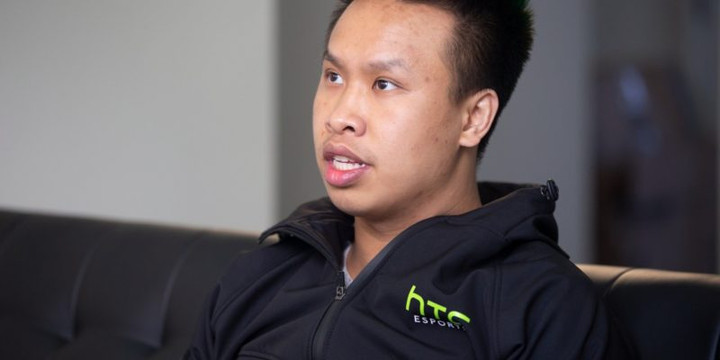The League of Legends community has been engaged in a heated debate regarding the alleged request made by LCS owners to remove the import rule that allows them a certain number of foreign players to make up their roster, with the discussion between TSM's CEO Andy Dinh and pro player Philippe "Vulcan" Laflamme ending with Dinh issuing an apology for his comments.
Vulcan tweeted out on 19th February that if teams want to build a "full import team, why don't go buy a team in that region?" With Dinh responding that his take was an "ignorant one," stating that he'd be working a minimum wage job without LCS.
(Image: @TSMReginald)
After facing criticism for his comments for the past week, Dinh posted both an apology to Vulcan and a more detailed explanation regarding his thoughts on LCS, including the disadvantages the region has compared to the LCK and LPL and why changing the import rule would benefit the region long-term.
"I want to say I went overboard with my comments towards Vulcan. Since then, I’ve reached out to him personally to apologize. We had a good conversation and he made it clear that it wasn’t taken personally," Dinh wrote.
As a former minimum wage job employee, Dinh states that he sympathizes with them, adding that he "will work to explain myself in a more clear and professional way when talking about serious topics, especially in a public forum."
TSM CEO believes changing import rule would benefit LCS
TSM became the first team to go 0-6 in Worlds history (Image: Riot Games)
Dinh didn't shy away from supporting changes to the current import rule, perhaps unsurprisingly so considering TSM's performance at the past Worlds where they went home without a win, however, he made it clear it shouldn't be a case of completely axing the current practices.
"It is now a pivotal moment to discuss changing the import rules and also looking for other solutions to even the playing field or see ourselves relegated to the status of a wildcard region."
The document covers issues like; ping ruining practice for NA players, the smaller player pool from which LCS can choose, the dwindling viewership, and more. If you're interested in the CEO's take, we suggest you take some time to read it.

 No ads, our video library,
No ads, our video library,



